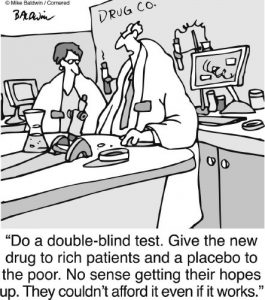Yesterday I came across the ‘Voices Matter’ documentary – “Voices Matter” is the first full production to emerge from the Open Paradigm Project, a collective dedicated to heeding the voices and perspectives that accompany the diverse and changing realities we all share.

The ‘Voices Matter’ documentary is concerned with the Hearing Voices Movement and was filmed over the course of three days at the 2012 World Hearing Voices Congress in Cardiff, Wales. The Hearing Voices Movement started 25 years ago in the Netherlands as an organization for voice hearers and others interested in this phenomenon. In 1988, The Hearing Voices Network was established in England (www.madinamerica.com/2013/05/voices-matter).
The ‘Voices Matter’ documentary can be accessed on http://www.madinamerica.com/2013/05/voices-matter/. I think the ‘Voices Matter’ documentary – among others- poses a critically important question, i.e. What counts as valid evidence/knowledge in mental health? In the documentary we get a glimpse of two opposing paradigms (frameworks) for defining valid evidence/knowledge.
On the one hand, a CBT psychologist working in the UK context talks about Randomised Control Trials (RCTs) as essential for generating valid evidence/knowledge on an approach to a phenomenon/experience, such as the Voice Dialogue approach to voice hearing. She indicates that if there were RCTs conducted on the Voice Dialogue approach and if it was shown (through RCTs) that this approach works, then this approach could/would be included in the NICE (National Institute of Clinical Excellence) guidelines for ‘the treatment of voice hearing’, i.e. it could/would become accepted as credible by the medical and scientific research community.
So, in the CBT psychologist’s framework, RCTs emerge as the gold standard for generating valid evidence/knowledge in mental health. This reflects the commonly used in health research Hierarchy of Evidence [1] where RCTs are referred to as Type I evidence and are located at the top of the hierarchy, whereas the opinions of service users and carers for example are referred to as Type V evidence and are located at the bottom of the hierarchy. The CBT psychologists’s framework appears to stress scientific classification, professional expertise, and statistical evidence [2].
On the other hand, Rufus May, a clinical psychologist who works with the Voice Dialogue approach (also in the UK context), says that Voice Dialogue – and the Hearing Voices Movement it emerged from – is not just another treatment but an emancipatory approach emerging from a social movement, such as the civil and human rights movements or the women’s movement. He goes on to say that when it comes to these social emancipatory movements, the evidence is people’s testimonies.
Importantly, as he is saying that he is moving his hands indicating that something is coming from deep inside, i.e. from people’s emotions and emotional experience. So he is talking about testimonies (narratives) based on people’s emotional experience as encapsulating valid (experiential) knowledge/evidence. Rufus May’s framework (as opposed to the CBT psychologist’s framework above) seems to emphasise individual emotional experience and the personal testimonies of people (service users/survivors) as expert data in its own right [2].
[1] Haigh, R. (2012) ‘Being Economical with the Evidence’, Group Analysis, 45 (1): 70-83
[2] Cresswell, M. (2005) ‘Psychiatric ‘‘survivors’’ and testimonies of self-harm’, Social Science & Medicine, 61: 1668–1677
